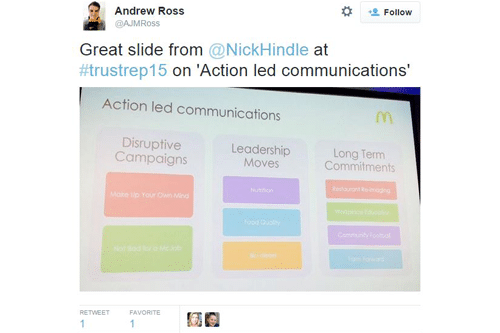Gamers are a passionate bunch – one minute they love a game developer – the next they’re ripping them to shreds on Reddit, launching campaigns and starting a backlash.
But why does this happen? Is it just a mixture of entitlement, social media anonymity and being angry at the world? Or is there something developers can do that will moderate these backlashes?
The games industry is worth £3bn to the UK economy (the UK is the fifth largest gaming market in the world). When these backlashes happen, they can have a significant impact on the success of a game.
Let’s look at some recent (an on-going) examples of fan rebellions.
Bethesda
Bethesda is famous for its vast open-world role-playing games (RPGs), which generally fall under two franchises. The Elder Scrolls series – its fantasy RPG, and Fallout – its post-apocalyptic RPG.
When you buy a Bethesda game, you know it’s going to be full of glorious (and in some cases, frustrating) glitches. This has created a huge modding community around the game. For the uninitiated, these are unpaid fans who fix the bugs for free and create extra content such as new areas, quests, items and characters for fans to download. The community is so successful, that it helps to keep older games (like The Elder Scrolls V: Skyrim – which first came out in 2011) fresh.
So, given that people know what to expect when they buy a Bethesda game, why is it experiencing issues now?
- Its latest game, Fallout 76, had a messy launch. A few weeks before release, some fans got to “break it early” and participate in a large-scale beta test (in short, play the game and find any game-breaking bugs before general release). A lot of beta testers posted critical videos to YouTube decrying the buggy state of the game and things like the complete absence of NPCs (AI powered characters in the world). There’s also the fact that you could hear Gary from Texas being called to dinner by his parents while his character was off somewhere in the woods (I’m sure Gary’s lovely, but it isn’t open mike night). On release, Bethesda patched the game (totally normal) and console players had to download a file that was around the same size as the entire original game (not so normal).
- Players of its other games are experiencing issues due to Fallout 76. After the patch, Skyrim and Fallout 4 players found that they had issues with downloading mods (and the company’s own Creation Club purchases) on consoles.
Fallout 76 is continuing to get slammed on review site, Metacritic. It doesn’t help that people who are enjoying the online-only game sometimes find that they can’t play the game, because they cannot connect to the server.
BioWare
BioWare is known for making brilliant story and character-driven RPGs and is best known for its fantasy RPG, Dragon Age and its Sci-Fi RPG, Mass Effect.
It went through the wringer in 2017 as a result of Mass Effect: Andromeda. What’s going on now is low-level mass anxiety in the fan community because:
- It’s focusing its attention on Anthem, a new franchise which is a departure from its traditional games. It will be multiplayer. It will have limited dialogue options. There will be no traditional BioWare AI squad (usually made up of amazing characters and stunning voice acting talent). There will be no romances (it’s basically the law that romances be in BioWare games, so many fans see this as especially egregious).
- The last Dragon Age game ended on a cliff-hanger and there has been very little news of the next game in the series. So, every time a person on the Dragon Age team tweets, it’s dissected for hints, hope or problems. Gaming news sites and national newspapers pick up on the discussion and produce “the franchise is DOOMED!” type headlines that fuels the anxiety of people who just want to know when they can expect to continue their story. (It’d be like J.K. Rowling stopping at Harry Potter and the Goblet of Fire to work on – and publish – The Casual Vacancy. Can you imagine the outcry from people waiting to see what happens with Harry next, and instead they get a book focusing on drama around a parish council election?)
- The last Mass Effect game (Andromeda) faced a massive backlash, and the developer abandoned it quite quickly, not releasing the expected story-driven single-player DLC that it usually did – this also created a substantial backlash and social media campaign from the fans who did enjoy the game.
Anthem, due out in Feb 2019, faces scepticism from fans who still hold old grudges, and it has to overcome the ‘not Dragon Age or Mass Effect’ problem with a lot of other fans – many of whom tend to steer clear of multiplayer games.
Fans have been so worried about the future of their beloved franchises, that BioWare’s General Manager stepped in to clarify the situation.
Some weird stuff going around about how our future games will be influenced by Anthem. Of course when we do a Dragon Age game it will be designed from the ground up based on what Dragon Age should be. Same with Mass Effect…
— Casey Hudson (@CaseyDHudson) September 4, 2018
But that was back in September. It calmed people down for a bit but did nothing to stop speculation in the long-term.
Blizzard
Blizzard (known for massively multiplayer online role-playing game World of Warcraft) is in the doghouse with its fan-base for daring to take its Diablo franchise to *gasp* mobile. The online backlash has been so harsh that shares in Activision-Blizzard dropped 7.2%.
Shortly after it announced that Diablo Immortal would be a mobile game, the Blizzard team went to BlizzCon (which is, oddly enough, Blizzard’s fan convention). During its open-mike question and answer session with fans, one fan got up and asked if the announcement was “an out-of-season April Fool’s joke” (and the audience cheered).
Before the conference, the developer blogged that it would have Diablo news at the show and that they were working on several Diablo projects. It was vague enough to get fans excited about something more. When the announcements failed to meet their expectations, it just fuelled the social media backlash.
The developer released an official statement on the status of Diablo, but this was overshadowed by several employees talking to the media anonymously. (While this may be a nightmare for the PR team, it’s interesting to get a glimpse of what may be going on behind-the-scenes.)
Blizzard is going through a similar issue to BioWare. Fans of established franchises are desperate for more of what they love. The developer wants to try something new, to keep their teams fresh and experiment with ideas they can bring to their main franchises (recent reports suggest that it’s hoping to make a Pokémon Go-like version of World of Warcraft), but many fans see this as taking development time away from the games they love.
How can game developers manage fan expectations?
Understanding the fan-base
Developers need to know what makes their fans tick, and what alienates them. If you don’t know how much some of your fans truly hate something you’re not going to be prepared for the strength of their reluctance.
That doesn’t mean developers should cave to every fan whim or community backlash, but it won’t be able to make the game as successful as it could be if it can’t address what’s making people unhappy. It’s easier if it can prepare for this ahead of time.
Planning for a realistic response
Developers and their publishers want passionate fans. They want people to anticipate the next game and to discuss it with others, but you can’t create this feeling without its creating impatience and anxiety in the fan-base.
If you create a passion for something, people are going to want to know that the thing they love is alright and they’re going to defend it. It’s vital that the team working on the game, and the publisher that supports it, realise that changes to popular formulas will likely be met with concern and defensiveness. This will help them plan their communication strategy.
Finding a balance between the top-secret phase and the hype phase
There are certain things developers can’t talk about because the publisher dictates when the developer can make announcements. They may also not want to talk about a game they aren’t working on when they want people to be excited about the new one.
But there must be a way to provide a clear and reassuring message to fans about what they can expect. What tends to happen is hint dropping, or teasing, which only serves to increase expectations and make people draw the wrong conclusions. It comes back to bite the developer in the behind.
There are some issues – such as releasing a game before it’s ready – that developers (and publishers) need to address at a structural level. However, a lot of backlashes that game developers suffer are caused, in part, by communication problems and the failure to see what problems are coming down the road. Get the communication right, and a lot of these issues can become conversations, rather than controversies.
–
Photo by Adrien King on Unsplash






